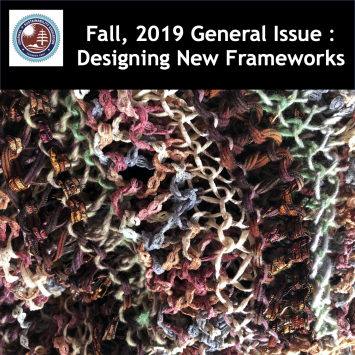Fall 2019 General Issue: Designing New Frameworks
The articles in this general issue discuss many frameworks for sustainability education, from competitions designed to engage students to the built environment for learning to theoretical rubrics applied to community food systems. Several articles address the mental models we hold that may foster or inhibit becoming more sustainable. These frameworks collectively advance the tools we might employ to create and measure community transformation.
Case Studies
O Grows, Community-Based Food Systems, and the Sustainability Compass
Sean A. Forbes and Carey E. Andrzejewski, Auburn University, U.S.
Student-Designed Greenhouse for Sustainability Competencies
Ian Carbone, Kelly Boulton, Sarah Nathan, & Bennett Gould, Allegheny College, U.S.
Lam Yan Yan, Design Academy, Sichuan Fine Arts Institute (SCFAI). Chongqing, China, and Duan Sheng Feng, Design Academy, Sichuan Fine Arts Institute, Chongqing, China
Anouchka Rachelson, Miami Dade College, U.S.
Journey
Lessons from Aotearoa’s Pōhutukawa in the 2019 International Year of Indigenous Languages and Beyond
Lewis Williams, Alliance for Intergenerational Resilience and University of Saskatchewan, Canada
Opinion
The Teaching Bioshelter: A Missing Resource for Sustainability Education
Scott Stokoe, U.S.
In search of “We the People” in Light of Plato’s “Allegory of the Cave”
Helen Lepp Friesen, University of Winnipeg, Canada
Report
Robin A. Lewis, Brandon B. Barile, Thomas E. Drennen, & Robert Beutner, Hobart and William Smith Colleges, U.S.
Scholarly Feature
Radical hope: Transforming sustainability
Laila M. Strazds, University of Toronto, Canada
David Selby’s Radical Approach to Sustainability Education
Sue L. T. McGregor, McGregor Consulting Group, Canada
Benefits of “Flip” Teaching Techniques in the Environmental Planning and Sustainability Classroom
Stephen Buckman (Clemson University), David Pijawka (Arizona State University), Jonathan Davis (Arizona State University), Matthew Gomez (Arizona State University), Yousuf Mahid (Arizona State University), & Adenike Opejin (Arizona State University), U.S.
Building a Foundation for Sustainable Principles: Case Studies of K-6 Green Ribbon Schools
Linda Plevyak, Sara Tamsukhin, & Randy Gibson, University of Cincinnati, U.S.
Rachelle Haddock, Nishan Sharma, & Rahim Kachra, University of Calgary











